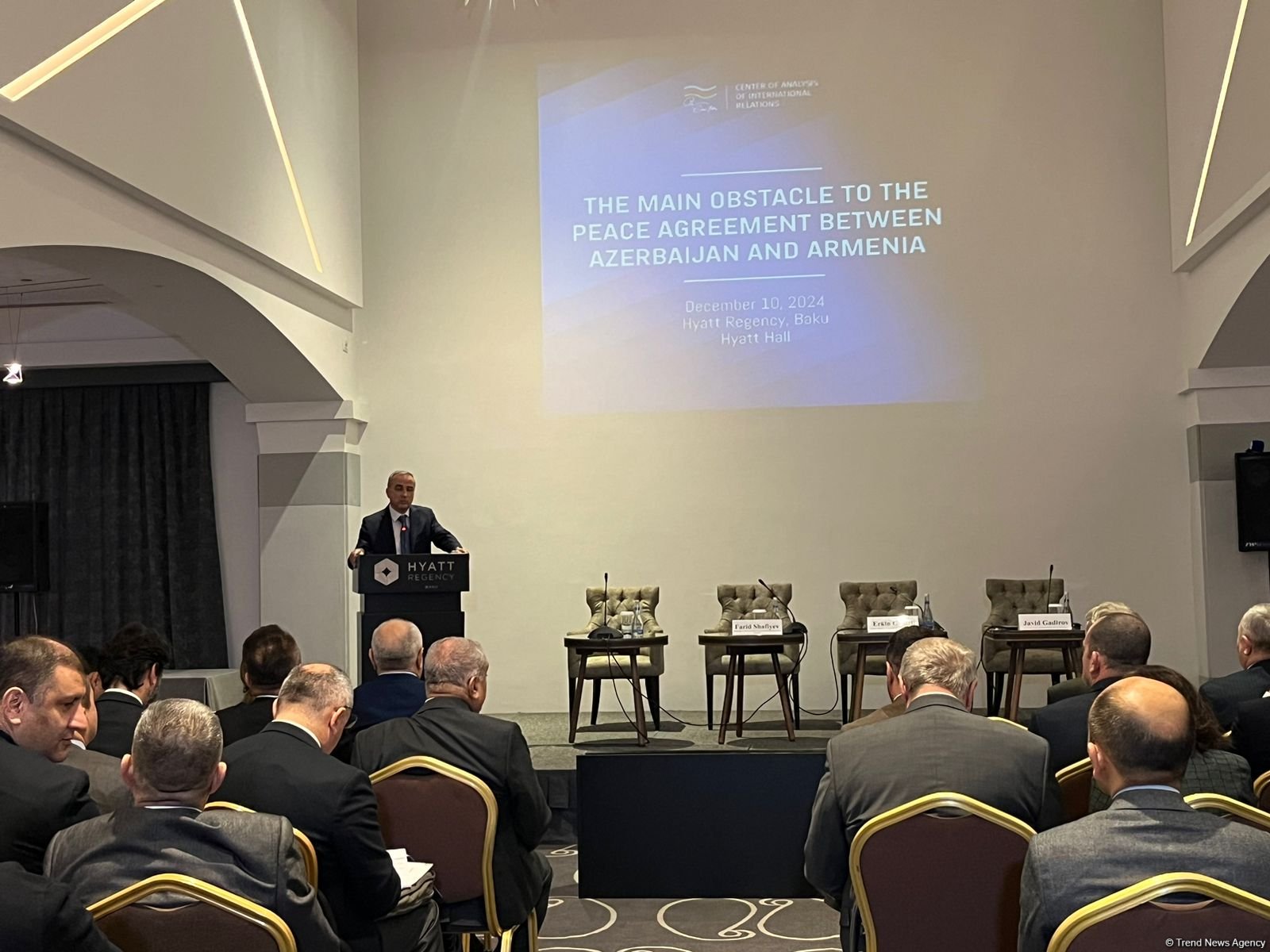BAKU, Azerbaijan, December 10. The Center of Analysis of International Relations (AIR Center) is hosting an international conference titled "The Main Obstacle to the Peace Agreement Between Azerbaijan and Armenia," Trend reports.
According to the information, the conference covers a range of issues.
The liberation of Azerbaijani lands, which were under Armenian occupation in both 2020 and 2023, and the full restoration of Azerbaijan's sovereignty over all its territories have created opportunities for peace between the two countries. However, Armenia's position on respecting Azerbaijan's territorial integrity and sovereignty remains unclear.
Territorial claims against Azerbaijan still exist in Armenia's Constitution, which is the supreme law of the Republic of Armenia, as well as in other legislative acts.
The Declaration of Independence, adopted by Armenia on August 23, 1990, refers to an act by the Supreme Council of the Armenian Soviet Socialist Republic from December 1, 1989,which considered Karabakh as an integral part of Armenia. This assertion was later reflected in the preamble of the Constitution, adopted on July 5, 1995, and remained during amendments made on November 27, 2005, and December 6, 2015.
The issues mentioned above are expected to be central topics at today's conference.
Speaking at the event, Azerbaijan's Deputy Foreign Minister Elnur Mammadov said that Armenia hasn't yet determined its exact borders.
"Armenia kept Azerbaijani lands under occupation for 30 years. After the liberation of our territories from occupation, Azerbaijan proposed a peace offer to Armenia.
For the side that won the war to propose peace—this is simply an unprecedented event.
However, Azerbaijan took these steps. We tried to develop a peace agreement. However, there are two reasons that are obstacles to peace. The first is the Constitution of Armenia.
Negotiations are still ongoing, and we say that Armenia should not bring these issues to the international stage," he added.
Deputy Dean of the Faculty of Law at ADA University Javid Gadirli noted that Armenia’s territorial claims to Azerbaijan are neither a hypothesis nor something fictitious.
He noted that since the day both countries gained independence, Armenia has claimed Azerbaijan's Karabakh as its territory and has occupied it militarily for almost 30 years.
"The decision of the Constitutional Court of Armenia on delimitation does not eliminate the constitutional obstacles to signing a comprehensive peace agreement with Azerbaijan. The court's decision addressed the issue of whether the agreement on the establishment of a delimitation commission is in accordance with the Constitution of Armenia.
The court emphasized that the territorial claims in the preamble and the Declaration of Independence are an unchanging provision. These provisions, as the court emphasized, represent the highest constitutional values, accepted by the founding authority—the Armenian people," he stressed.
Gadirli also noted that while the court's decision facilitated the work of the delimitation commission, it does not deny that these claims remain the fundamental constitutional goals.
"The 'decision on delimitation' reflects a narrow constitutional decision, which allows avoiding a broader issue concerning Armenia's territorial claims," he added.







